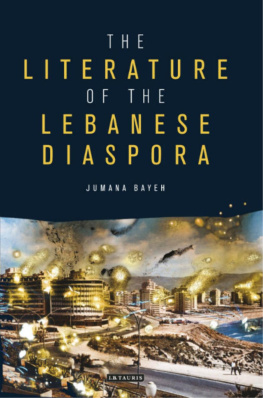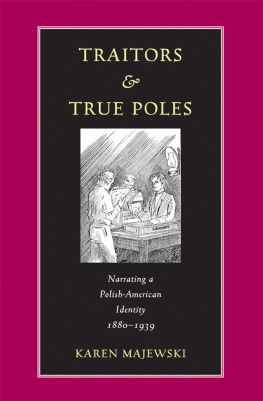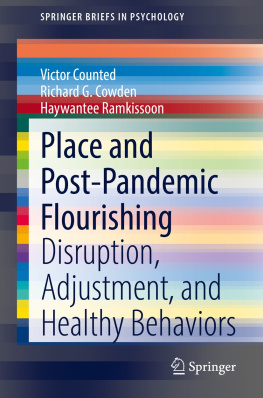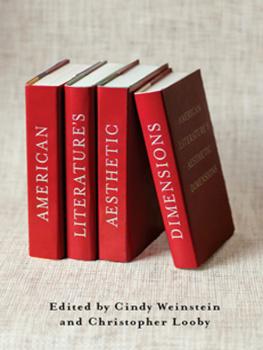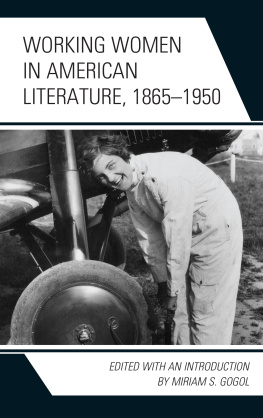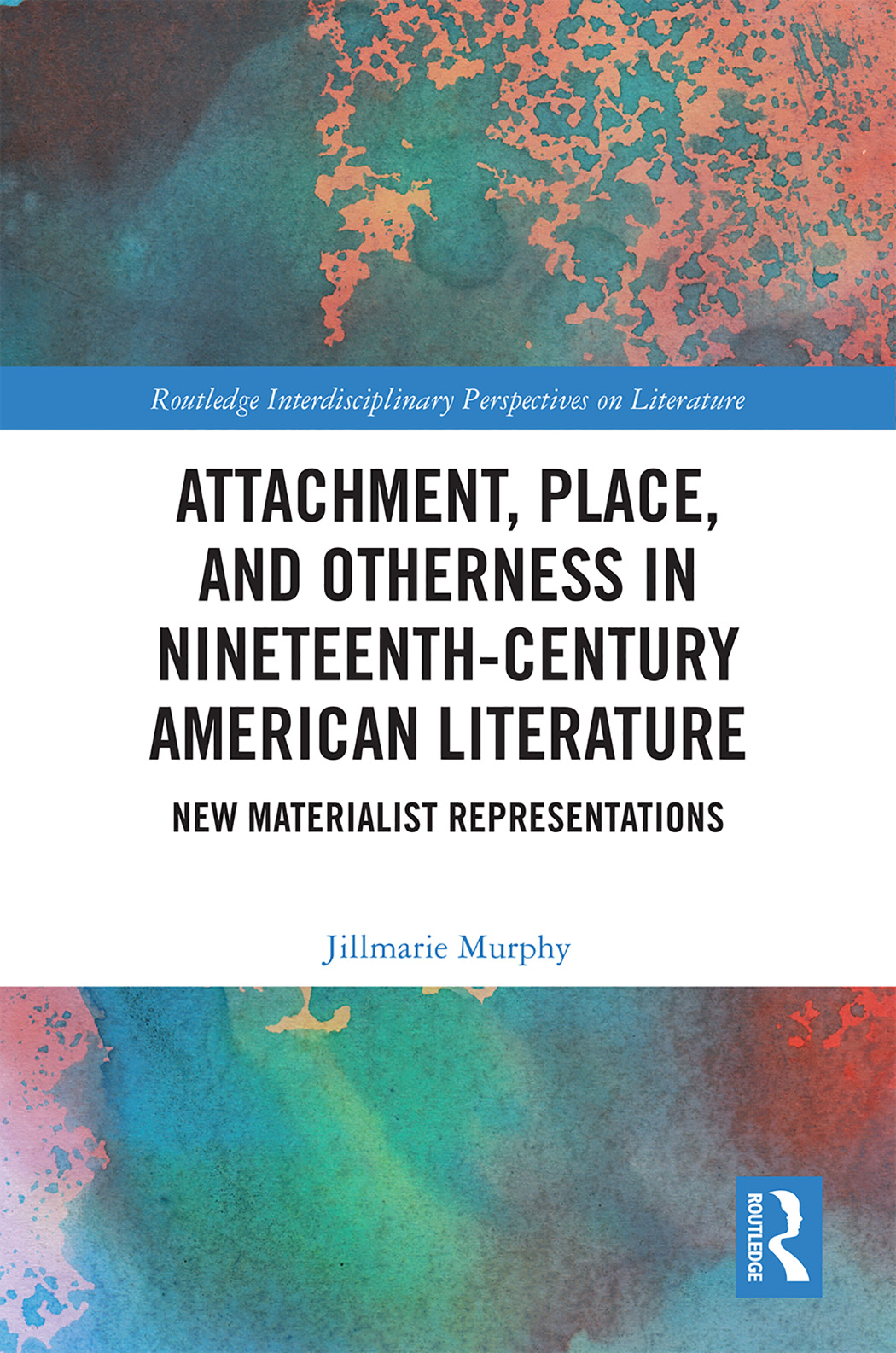
Attachment, Place, and Otherness in Nineteenth-Century American Literature
This interdisciplinary study examines the role interpersonal and place attachment bonds play in crafting a national identity in American literature. Although there have been numerous ecocritical studies of and psychoanalytic approaches to American literature, this study seeks to integrate the language of empirical science and the physical realities of place, while also investigating non-human agency and that which exists beyond the material realm. Murphy considers how writers in the early American Republic constructed modernity by restructuring representations of interpersonal and place attachments, which are subsequently reimagined, reconfigured, and sometimes even rejected by writers in the long nineteenth century. Within each narrative American perceptions of otherness are pathologized as a result of insecure human-to-human and human-to-place attachments, resulting in a restructuring of antiquated notions of difference. Throughout, Murphy argues that in order to understand fully the contextually varied framework of human bonding, it is important to emphasize Americas attachment to various constructions of otherness. Historically, people of color, women, ethnic groups, and lower-class citizens have been relegatedsocially, politically, and culturallyto a place of subordination. Refugees escaping the French and Haitian Revolutions to American cities encouraged writers to transform social, cultural, and political attachments in ways that the American Revolution did not. The United States has always been part of an extended global network that provides fertile ground from which to imagine a future American identity; this book thus gestures toward future readers, educators, and scholars who seek to explore new fields and new approaches to understand the underlying human motivations that continually inspire the American imagination.
Jillmarie Murphy is Associate Professor of English and Director of the Gender, Sexuality, and Womens Studies Program at Union College, Schenectady, NY. She has published books, journal articles, and essays that focus on Puritan poetics, literature of the early American Republic, prominent and lesser-known antebellum literary figures, and transatlantic novelists who span the nineteenth and early twentieth centuries. Her publications generally employ the psychosocial paradigm of attachment theory, drawing on topics considering parenting, gender, race, class, and ethnicity, as well as publications that consider the evolution of literary history and how certain authors and texts resonate long after their heyday.
Routledge Interdisciplinary Perspectives on Literature
For a full list of titles in this series, please visit www.routledge.com.
80 Storytelling and Ethics
Literature, Visual Arts and the Power of Narrative
Edited by Hanna Meretoja and Colin Davis
81 Multilingual Currents in Literature, Translation and Culture
Edited by Rachael Gilmour and Tamar Steinitz
82 Rewriting the American Soul
Trauma, Neuroscience and the Contemporary Literary Imagination
Anna Thiemann
83 Milton and the Early Modern Culture of Devotion
Bodies at Prayer
Naya Tsentourou
84 TransGothic in Literature and Culture
Edited by Jolene Zigarovich
85 Latin American Gothic in Literature and Culture
Edited by Sandra Casanova-Vizcano and Ins Ordiz
86 Mediating Memory
Tracing the Limits of Memoir
Edited by Bunty Avieson, Fiona Giles, and Sue Joseph
87 From Mind to Text
Continuities and Breaks Between Cognitive, Aesthetic and Textualist Approaches to Literature
Bartosz Stopel
88 Attachment, Place, and Otherness in Nineteenth-Century American Literature
New Materialist Representations
Jillmarie Murphy
First published 2018
by Routledge
711 Third Avenue, New York, NY 10017
and by Routledge
2 Park Square, Milton Park, Abingdon, Oxon OX14 4RN
Routledge is an imprint of the Taylor & Francis Group, an informa business
2018 Taylor & Francis
The right of Jillmarie Murphy to be identified as author of this work has been asserted by her in accordance with sections 77 and 78 of the Copyright, Designs and Patents Act 1988.
All rights reserved. No part of this book may be reprinted or reproduced or utilised in any form or by any electronic, mechanical, or other means, now known or hereafter invented, including photocopying and recording, or in any information storage or retrieval system, without permission in writing from the publishers.
Trademark notice: Product or corporate names may be trademarks or registered trademarks, and are used only for identification and explanation without intent to infringe.
Library of Congress Cataloging-in-Publication Data
CIP data has been applied for.
ISBN: 978-1-138-67326-7 (hbk)
ISBN: 978-1-315-56205-6 (ebk)
Typeset in Sabon
by codeMantra
To
Tessa Bailey and Liam Edward
Many thanks go to my friends and department colleagues Patricia Wareh and Claire Bracken for their continual support and encouragement. I would also like to thank the other members of the Union College English Department, especially Jordan Smith, Kara Doyle, Judith Lewin, and Bernhard Kuhn, who consecutively and skillfully served as department chairs during the time I was working on this manuscript; Andrew Burkett, Katherine Lynes, Jennifer Mitchell, Jenelle Troxell, and Bunkong Tuon, whose place at the helm is on the horizon; Hugh Jenkins, who previously fulfilled his chairly obligations; and finally Jim McCord, Anastasia Pease and Jeannette Sargent. Thank you as always to the guy who hired me, my friend, mentor, and former department chair, Harry Marten, who read and commented on parts of this book and who chose to stick around one day, just to make sure. I would also like to thank Union College President Stephen Ainlay, Dean of Faculty Therese McCarty, and Dean of Academic Departments Wendy Sternberg for providing me with support and the space needed to complete this project. Debbie Catharine, Andrea Foroughi, Christine Henseler, Erika Nelson, and Stacie Raucci deserve thanks for their generous emotional support and stimulating conversations. Thanks to Jeffrey Corbin for passing it forward with style. Thanks as well to Avery Novitch and Erin Wade for thinking Im wonderful. The feeling is quite mutual.
Thanks are also in order for Ronald A. Bosco, whose mentoring, support, and friendship, coupled with his amazing wit and brilliant mind, have enhanced my life in more ways than he will ever know. I would also like to thank Jeffrey Walker who read far too many grant proposals than I had a right to ask him to read and who has demonstrated to me the value of a well-executed bon mot.
Heartfelt thanks are in order for the wonderfully caring professionals at RoutledgeJennifer Abbott, Veronica Haggar, and Assunta Petrone. Your kindness, humanity, and goodwill are greatly appreciated.
Thank you to Taylor, Tristin, Teagan, Tessa, and Liam for all of the joy you have brought into my life.
Finally, I would like to express sincere gratitude to my remarkable mother, Lorraine Murphy, whose courage, strength, dignity, perseverance, and bravery in the face of horrendous personal tragedies and significant attachment losses never cease to amaze me.
Next page

